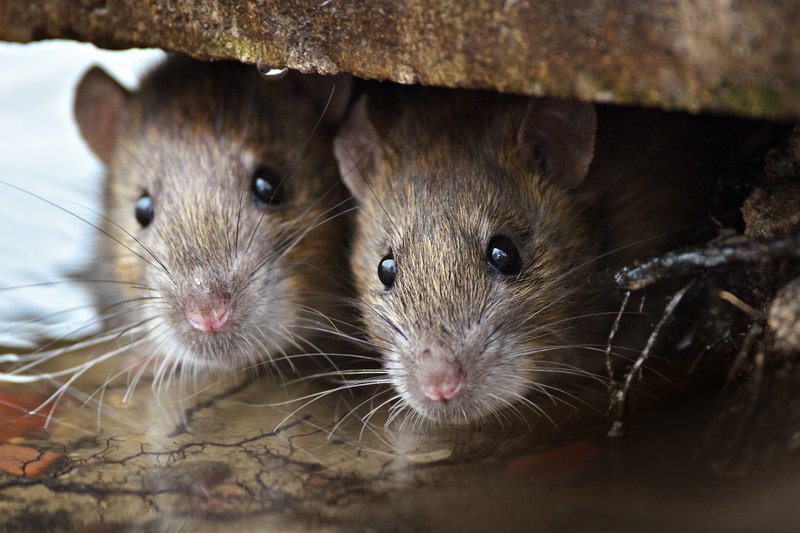Cleaning Your Home the Eco-Friendly Way
Posted on 03/07/2025
Cleaning Your Home the Eco-Friendly Way
In today's world, where environmental concerns are becoming increasingly pressing, adopting eco-friendly practices in our daily lives is more important than ever. One way to contribute to the health of our planet is by choosing eco-friendly methods to clean our homes. This not only minimizes the use of harmful chemicals but also reduces waste, conserves resources, and promotes a healthier living environment. Let's delve into the many ways you can make your home cleaner and greener.
Understanding the Benefits of Eco-Friendly Cleaning
The benefits of eco-friendly cleaning extend beyond just environmental conservation. Here are some key advantages:
- Reduction of Toxic Chemicals: Conventional cleaning products often contain harsh chemicals like ammonia, chlorine, and phthalates, which can be harmful to your health. Eco-friendly products use natural ingredients that are safer for you and your family.
- Improving Indoor Air Quality: Many traditional cleaners release volatile organic compounds (VOCs) into the air, leading to indoor air pollution. Using eco-friendly products can significantly improve the air quality in your home.
- Environmental Conservation: By choosing green cleaning products, you're reducing the number of harmful chemicals released into the environment, which positively impacts water, soil, and wildlife.
- Cost-Effectiveness: Many eco-friendly cleaning solutions can be made at home using inexpensive ingredients like vinegar, baking soda, and essential oils, saving you money in the long run.

Essential Eco-Friendly Cleaning Ingredients
Eco-friendly cleaning doesn't require a long list of specialty items. In fact, you might already have some of these versatile ingredients in your pantry.
- Vinegar: Vinegar is a natural disinfectant that can kill many types of bacteria and mold. It's perfect for cleaning glass, countertops, and bathrooms.
- Baking Soda: This multi-purpose cleaner can scrub away grime without scratching surfaces. It's also great for deodorizing carpets and upholstery.
- Lemon Juice: Lemon has natural antibacterial and antiseptic properties. Its acidity can break down grease and shine surfaces.
- Essential Oils: Oils like tea tree, lavender, or eucalyptus have antimicrobial properties and can be added to cleaning solutions for a pleasant smell and additional cleaning power.
- Castile Soap: Made from olive oil, this gentle yet effective soap can be used for a variety of cleaning tasks from dishes to floors.
DIY Eco-Friendly Cleaning Recipes
Creating your own cleaning solutions is a great way to ensure you know exactly what's in the products you're using around your home. Here are some simple recipes to get you started:
All-Purpose Cleaner
- 1 cup of water
- 1 cup of white vinegar
- 5-10 drops of essential oil (optional for fragrance)
Combine the ingredients in a spray bottle and shake well. This solution can be used on most surfaces, including glass, metal, and countertops.
Bathroom Cleaner
- 1/2 cup of baking soda
- 1/4 cup of hydrogen peroxide
- 1 teaspoon of liquid Castile soap
Mix these ingredients to form a paste. Apply to bathroom surfaces like sinks, tubs, and tiles. Let it sit for a few minutes before scrubbing and rinsing clean.
Glass Cleaner
- 1 cup of water
- 1 cup of vinegar
- 1 tablespoon of cornstarch
- 5 drops of essential oil (optional)
Mix ingredients in a spray bottle and shake well. Spray on glass surfaces and wipe clean with a lint-free cloth or newspaper for a streak-free shine.
Carpet Deodorizer
- 1 cup of baking soda
- 10 drops of essential oil (optional)
Combine the ingredients and sprinkle over carpets. Let it sit for 15-20 minutes before vacuuming. This will freshen up carpets and remove odors.
Adopting Sustainable Cleaning Practices
Using eco-friendly products is just one part of sustainable house cleaning. Here are additional practices to green your cleaning routine:
- Reduce Plastic Waste: Choose products with recyclable packaging, or better yet, buy in bulk and refill smaller containers. Use reusable cloths instead of disposable wipes.
- Save Water: Use a bucket of soapy water instead of running the faucet. Fix any leaks promptly to avoid wasting water.
- Eco-Friendly Tools: Opt for natural sponges, bamboo brushes, and other eco-friendly cleaning tools that are biodegradable or made from renewable resources.
- Recycle and Upcycle: After deep cleaning and decluttering, recycle items whenever possible and consider upcycling old items before discarding them.
- Energy Efficiency: Clean appliances like your vacuum cleaner and washing machine regularly to ensure they operate efficiently. Hang clothes to dry instead of using a dryer whenever possible.
Eco-Friendly Commercial Cleaning Products
If you prefer to purchase ready-made cleaning products, there are many eco-friendly options available on the market. Look for products that are certified by environmental organizations or have labels indicating they are biodegradable, non-toxic, and free from harmful chemicals.
- Seventh Generation: Known for their plant-based products, Seventh Generation offers a wide range of cleaners from laundry detergents to dish soaps.
- Method: This brand offers non-toxic, biodegradable cleaning supplies housed in attractive, recyclable packaging.
- Ecover: Ecover provides a variety of eco-friendly cleaning products, including dishwashing liquids, laundry detergents, and multi-surface cleaners.
- Dr. Bronner's: Their castile soap is a versatile, eco-friendly cleaning agent that can be used in a myriad of cleaning tasks.
Avoiding Greenwashing in Cleaning Products
Be aware of greenwashing, where companies mislead consumers into believing their products are eco-friendly when they are not. Here are some tips to avoid falling into the greenwashing trap:
- Read Labels Carefully: Look beyond the branding and read the ingredient list. Avoid products with vague terms like "natural" or "eco-friendly" without specific evidence to back these claims.
- Research Brands: Investigate the company's overall commitment to sustainability. Reputable brands will typically have transparent information about their ingredients and environmental policies.
- Certifications and Endorsements: Check for certifications from trusted environmental organizations such as Green Seal, EcoLogo, or the EPA's Safer Choice label.

The Future of Eco-Friendly Cleaning
The movement towards eco-friendly cleaning is more than just a trend; it is an important step towards a sustainable future. Advances in green technology and an increasing number of environmentally-conscious consumers are driving the market towards safer, more sustainable products.
As individuals, our choices can collectively make a significant impact. By opting for eco-friendly cleaning methods, not only do we contribute positively to the environment, but we also create a healthier living space for ourselves and our loved ones.
Conclusion
Embracing eco-friendly cleaning methods is a practical and impactful way to contribute to environmental sustainability. By understanding the benefits, utilizing natural ingredients, making your own cleaning solutions, adopting sustainable practices, and being a conscientious consumer, you can make your home a safe and eco-friendly sanctuary. Together, we can take small but meaningful steps towards a cleaner, greener future.
Remember, every little bit counts when it comes to protecting our planet. Start with these simple tips and gradually integrate more eco-friendly practices into your daily routine. Your home, your health, and the environment will thank you.
Latest Posts
Spring Cleaning: Wellness Starts at Home
How to Sanitise Your Coffee Maker

